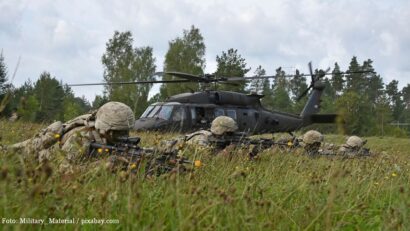Romania Enters Schengen
The Schengen external border changed on 1 January

Corina Cristea, 03.01.2025, 16:35
The Schengen external border changed on 1 January, with the entry into force of the Justice and Home Affairs Council decision of 12 December 2024, by which Romania and Bulgaria joined the free movement area and the land borders. Thus, the frontier moved to Romania’s border with Serbia, the Republic of Moldova, and Ukraine, while Bulgaria has an external Schengen frontier at the border with Serbia, North Macedonia and Turkey, the latter being one of the most complicated on the eastern side in terms of illegal migration.
The problems on this border area were one of the reasons why Austria was late in giving its consent in recent years. Emotions ran high until the last moment for Bucharest and Sofia. Although, in November, Austria had signed an agreement on full accession in Budapest, and the Austrian government had made political statements that it would no longer veto it in the Council, surprises emerged from the Netherlands at the last moment. The right-wing radicals from the Freedom Party initiated a parliamentary procedure to stop this move, but failed to gather a majority. Valentin Naumescu, professor of international relations at Babeş-Bolyai University in Cluj-Napoca, told us:
“Romania deserved integration into the area of free movement, and has deserved it for a long time. We should have received this decision around March 2011, when we first met the technical criteria for accession. Unfortunately, there was always an unfavorable context, a combination of European and regional political circumstances, which were negative for Romania. The Netherlands, Austria, and other countries had elections, or were afraid of the rise of extremist, anti-migration parties. Everyone was settling their domestic political scores at the expense of Romania and Bulgaria. So, this delay, I would dare to say, is not due to us, Romania, because we have been meeting the technical criteria for over 13 years, and this has been recognized by the European Commission.”
From now on, it is a closed chapter, Romania has entered the normality of a member state of the European Union, which has long fulfilled the conditions to be a member of the Schengen area, insists Professor Naumescu, but, he adds, there is another important thing happening, which is worth highlighting:
“It is also important that Bulgaria is entering with us, because, from a geopolitical point of view, a corridor from Greece, in the south of the European Union, to Central Europe is being closed. This corridor of free movement will be very important for carriers, for the economy, for the Romanian economy and not only, for the economy of the region, for the European Union as a whole. There are many companies that will benefit by shortening transport times, transiting the territory of these countries, by abolishing internal customs controls. So, these are things that will be felt in the short and medium term, I would say in the coming years as well. We will be better connected economically, many investors will dare to come and invest in our part of the world, having lower costs. Otherwise, we can’t say that many things will change. Yes, it’s also a matter of prestige, but in the sense of returning to normality, because our prestige was affected.”
Joining Schengen not only eliminates hours of waiting in line at borders during the holidays, but also changes the rules of the game for the economy, bringing advantages in terms of the fact that freight transport will be more efficient and less expensive, according to the principle of “time is money”. With the elimination of controls, carriers will save millions of euros annually, and Romanian products will reach shelves in Europe faster and at lower costs. Simply put, Romania becomes more competitive in an extremely dynamic European market, but also more attractive to foreign investors. At the same time, border regions become true economic hubs. Without bureaucratic controls, local trade will grow, and cross-border collaborations will generate jobs and economic growth. According to the agreement, Romania and Bulgaria are part of the Schengen area starting January 1, but for six months there will be a regime of alternative or spot checks – a safety measure to see how free passage works. This means that not all vehicles or people will be stopped for inspection as before, but according to the authorities’ estimates, somewhere between 5 and 10 percent at most. Such checks are not new, they were temporarily initiated on various internal borders in Schengen, amid the increase in illegal migrants from outside to the interior of the Union. Another reason is Russia’s hybrid war, which poses security risks to the European Union.






























